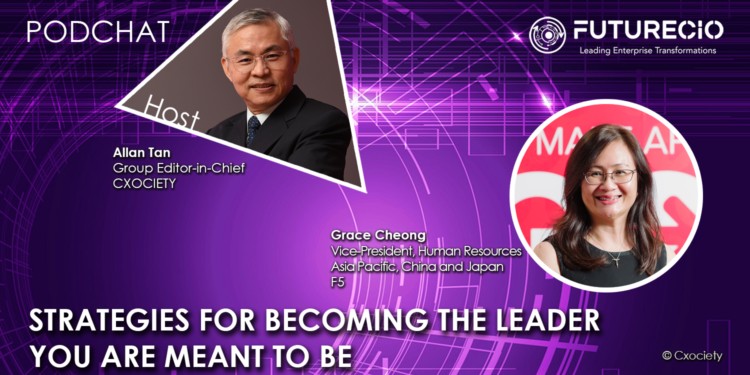The Kaspersky 2021 Women in tech report noted that 56% of women who participated in the survey believe that gender equality has improved in their organisation over the past two years. Also, gender has become less of a concern when applying for a position.
But as noticed in FutureCIO’s interviews with women leaders this year (2021), the opportunities appear to dwindle as one goes up the corporate ladder.
“One of the main reasons we are not realizing a faster pace of change in this area is because too much of the activity surrounding gender equality in IT focuses on one-off gimmicks and band-aid solutions that can be spotlighted in the press, instead of focusing attention on female employees and the actions that will truly make a sustained difference in their professional lives.”
Dr Ronda Zelezny-Green, co-founder and director, Panoply Digital.
For her part, Grace Cheong, vice president for HR in APCJ at F5 see increased opportunities for women and that technology and digital transformation have levelled the playing field. She believed that it is women who are changing technology and digital transformation.
“I feel that women have paid a big part in digitizing and making companies in the digital transformation journey, much more human,” she opined.
The COVID-19 influence
Asked if the COVID-19 pandemic has diverted, or even derailed, as the advances made in gender equality in the workplace, Cheong is adamant the crisis has made the case for women professionals even more visible.
“If you notice around the world, it's the women who, with their nurturing qualities, have helped many companies to kind of navigate the current situation,” she pointed out. She reiterated that women bring out the ‘humanistic outlook’ for any company.
Qualities that stand out
While she acknowledged that being detailed-oriented and have nurturing qualities are not exclusive to either gender, women have these to a greater degree.
“All around the world, people face varying degrees of challenges in their lives. I have got a ton of employees who have family that was affected. Having to travel around the world just to be with their family again and getting stuff there. Women leaders tend to be the ones who are reaching out to say it is okay. Let us do this together,” she beamed with enthusiasm.
Qualifications of a leader
Asked what qualities matter to become a leader, she was quick to make a correction saying life experience is what makes a person a leader.
“It is not about the number of letters that you have behind your name, but rather what skills you've picked up, how you've learned from your life experiences. You bring those experiences to bear in any role that you play. I would say that (life experiences) are more important than acronyms behind your name,” she continued.
Inspirational model
She cited Mika Yamamoto, F5’s chief experience and chief marketing officer, as someone she admired. For Cheong, Yamamoto embodied the best and the brightest, both technical and nurturing.
“She has this human-first outlook as well as being able to bring others along the journey. Despite being technical, she has not lost any of a woman’s charm for bringing all her team as well as the company along in the journey,” said Cheong.
Leadership lesson
For Cheong, empathy trumps all other leadership qualities. She points out that people come from different backgrounds and life experiences. It is therefore not right to say one is better than the other. Rather everyone can learn from each other.
Empathy helps us to grow as a person. Ultimately, I think leadership is about being the best possible person that you can be. It is not necessarily about all the high-flown management theories. It is about being able to relate to one another and realizing the goodness and the gifts that each person has,” she opined.
Barrier for leadership
She opined that society and culture continue to play a role in promulgating gender equality. She reflected on her days in university when the engineering department was dominated by male students and women just don’t get there.
These days she acknowledged that a woman taking an engineering degree doesn't make her any less feminine. Your ability to be technical has got nothing to do with your gender. It's just what you are interested in,” she added.
The other barrier is not wanting to stick out!
“Nobody likes to feel out of place. Nobody likes to be one of only a small handful of females in a class of men or for example, even in a boardroom, to be in the minority, people just feel out of place,” she lamented.
Parting advice
“The first is to have confidence in yourself. Have confidence in your abilities. The second is to find a good sponsor, someone who recognises your ability and whom you can look up to and learn from,” she suggested.
She opined that there has never been a better time to act than now. The awareness has kind of exploded everywhere in the world. There are so many more opportunities that were not there (previously).
She concedes that leadership is not for everyone. “Find a good sponsor, have confidence in your abilities, talk to other women leaders, learn their life’s journey. Learn what has worked for them. At the same time learn what has not worked for them. Grab the opportunity and go for it,” she concluded.
Click on the podchat player above to listen to Cheong’s views on how women are shifting the discussion when it comes to the role of women in technology, transformation and innovation.




